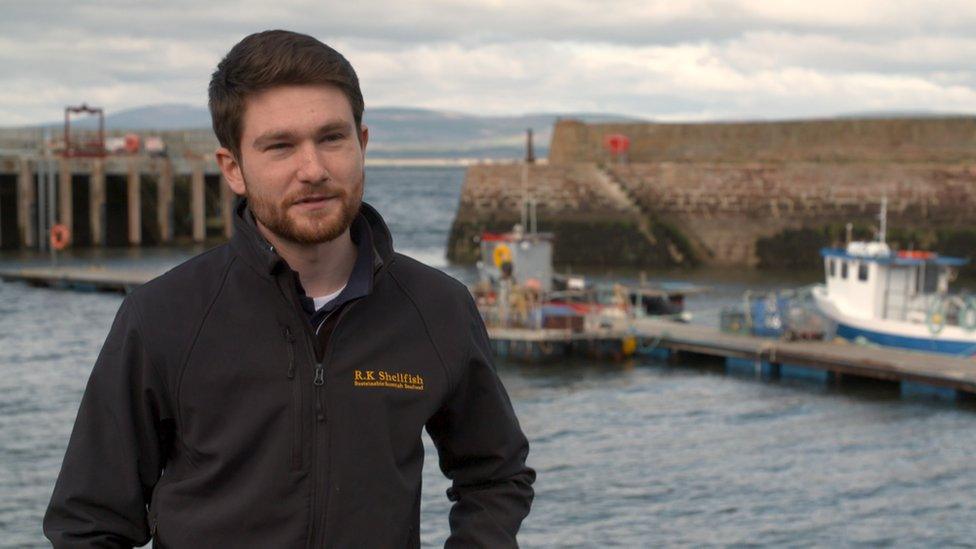Illegally-harvested shellfish 'seized' in Essex and Suffolk
- Published
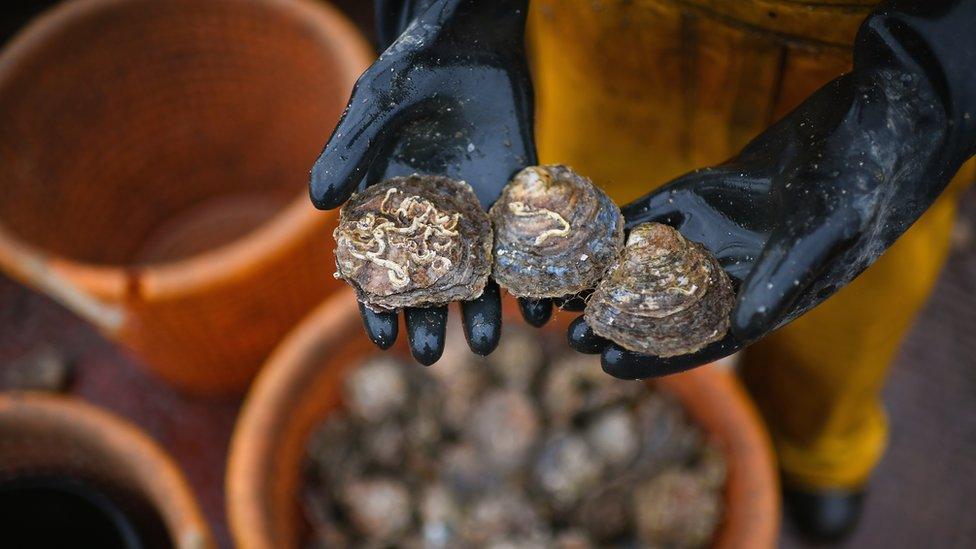
Police and local authorities have seen a rise in shellfish, such as oysters, being picked illegally
Authorities have seized "significant volumes" of shellfish that were "illegally harvested" from the coast.
People have been stopped after collecting oysters and mussels from Southend and Canvey Island in Essex, and Shotley in Suffolk.
Shellfish that are not properly harvested are unsafe for human consumption and can carry illnesses such as norovirus.
Essex Police said illegal shellfish picking was an "emerging problem".
The force said it seized several bags of oysters and returned them to the water following reports of mass picking of shellfish in Canvey Island.
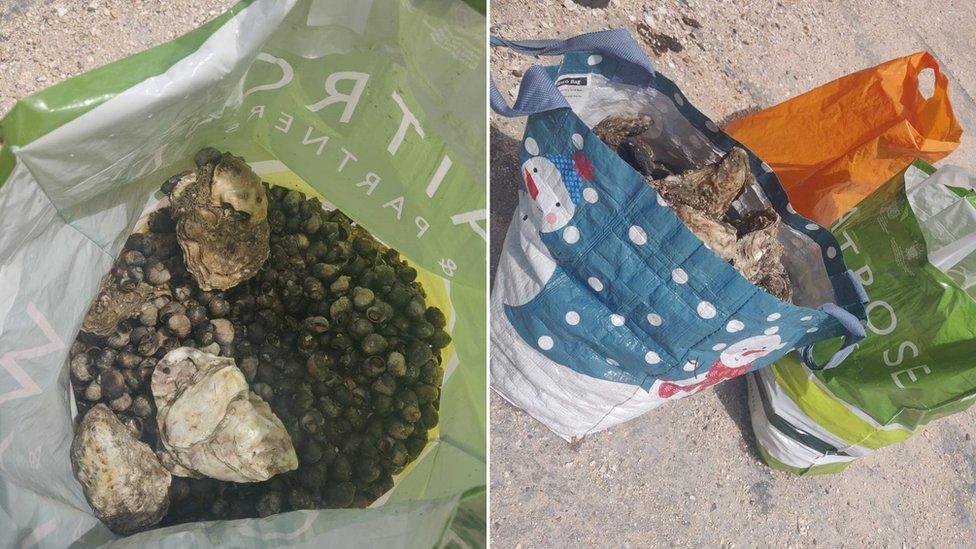
Essex Police seized shellfish collected illegally at Canvey Island and returned them to the water
Councillor Martin Terry, from Southend-on-Sea Borough Council, said the authority had worked with "foreshore officers and Essex Police to seize the significant volumes of illegally-harvested shellfish".
"Oysters collected from Southend's beaches are not safe for human consumption without going through a lengthy purification process or being thoroughly cooked," he said.
Mr Terry said the commercial collection of shellfish was "tightly regulated" and that shellfish sold on the black market "could have serious consequences for public health" and would damage the reputation of the industry.
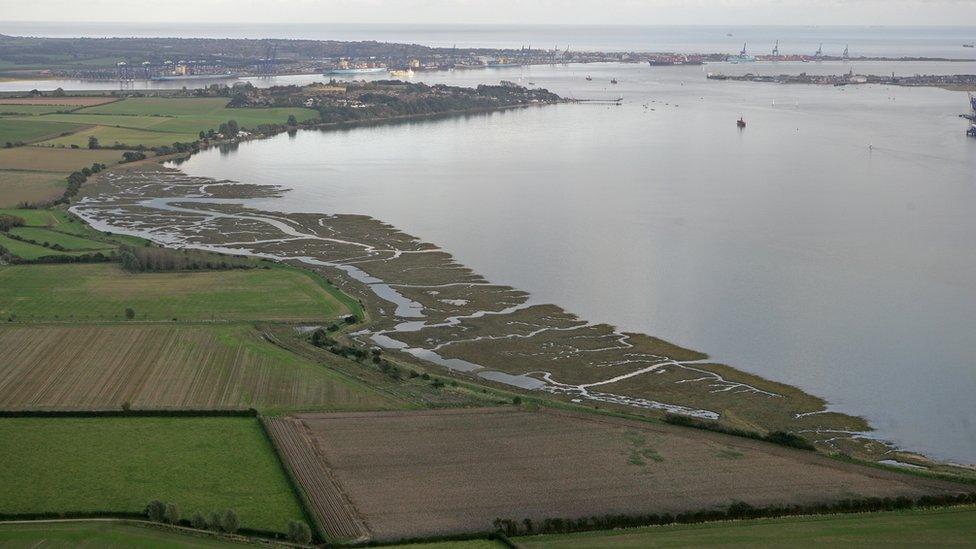
There have been reports of people picking large quantities of mussels on the Shotley foreshore in Suffolk
Castle Point Council, which covers Canvey Island, and Babergh District Council, which includes Shotley, said they had received reports of illegal shellfish picking.
Chef Galton Blackiston, who owns a Michelin-starred restaurant in Morston in North Norfolk, said although shellfish from the east coast of England were desirable this was "purely and simply because of the quality control regulations".
He said he only bought local shellfish "from suppliers whom I have dealt with for up to 28 years so they have been handed down the generations most of the time".
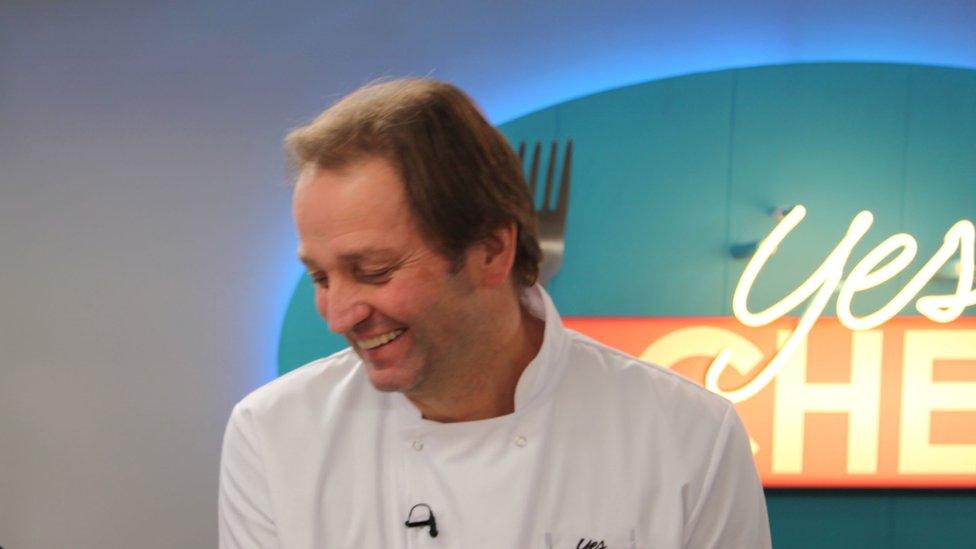
Chef Galton Blackiston said the purification methods used in commercial mussel and oysters production make them clean and safe to eat
The management of inshore sea fisheries is the responsibility of Inshore Fisheries and Conservation Authorities.
Both the Eastern and Essex & Kent authorities said harvesting without a permit or licence was illegal and could impact sustainability and the environment.

Find BBC News: East of England on Facebook, external, Instagram, external and Twitter, external. If you have a story suggestion email eastofenglandnews@bbc.co.uk
- Published9 April 2020
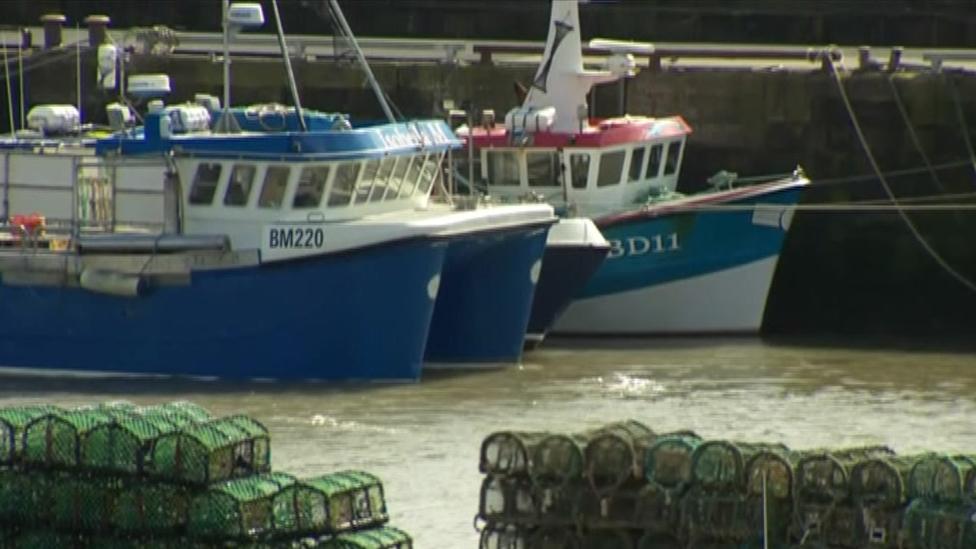
- Published11 April 2019
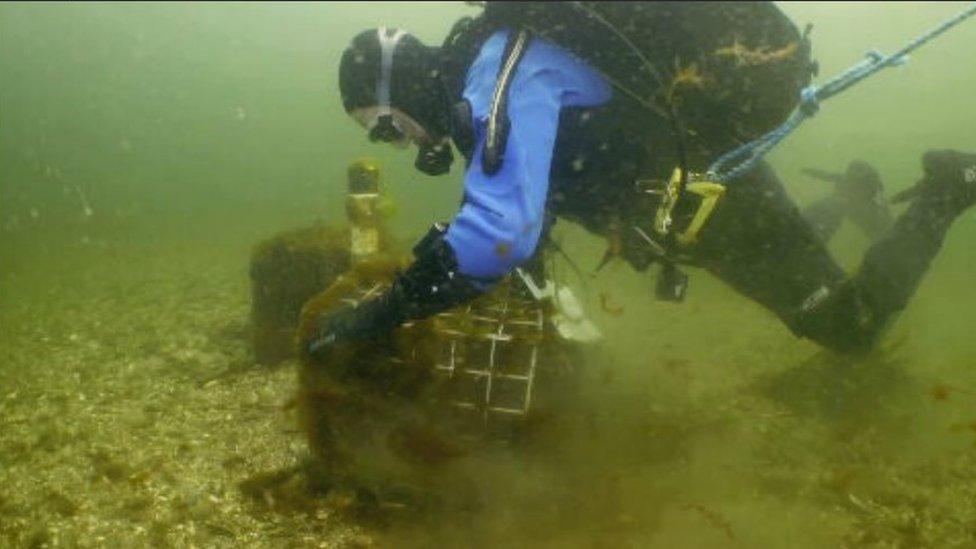
- Published17 April 2020
